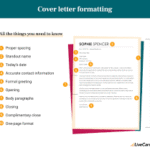A Gentle Beginning
At first, opening the Bible can feel overwhelming. After all, it’s not just any book—it’s a collection of writings that span thousands of years. Because of that, many people ask themselves: Where should I begin? or How will I make sense of this? Thankfully, learning how to read the Bible doesn’t have to feel impossible. Instead, think of it as starting a journey. Just like getting to know a friend, it takes time, patience, and willingness to listen. Eventually, the words will feel familiar and meaningful.
Why It’s Worth Reading
First of all, the Bible has shaped countless lives. In fact, people turn to it for comfort, encouragement, wisdom, and direction. For example, someone facing fear may find peace in Psalms, while another person searching for guidance may discover it in Proverbs.
On the other hand, if you don’t know how to read the Bible, it may feel confusing or discouraging. That’s why starting with a simple plan makes such a difference. As a result, the Bible becomes more than words—it becomes a living message that speaks to your heart.
Start Small Instead of Big
At this point, it’s tempting to begin with Genesis and go straight through. However, this approach can be tough for beginners. Rather than trying to read cover to cover, start with manageable portions.
-
For example, the Gospel of John gives a clear picture of Jesus.
-
In addition, Psalms provides short, heartfelt prayers for daily life.
-
Likewise, Proverbs offers practical wisdom that applies even today.
In short, small beginnings lead to steady growth.
Read with Curiosity
When it comes to understanding the Bible, curiosity is key. Instead of rushing through passages, pause and ask questions. For example:
-
What’s happening here?
-
Who is speaking, and why?
-
What does this show me about God?
-
How does this connect to my life?
Because of this approach, the Bible shifts from being distant to being personal. Therefore, your reading time becomes meaningful, not just routine.
Use Tools That Help
Of course, some parts of the Bible are harder to understand. That’s why using tools can make a big difference.
-
For instance, a study Bible offers notes and maps.
-
In the same way, apps like YouVersion make scripture easy to carry.
-
Similarly, commentaries explain verses in depth.
-
Finally, journaling your thoughts allows you to reflect and remember.
In the end, these tools aren’t crutches—they’re guides that make your journey smoother.
Let It Become Personal
More importantly, the Bible isn’t meant to stay on the page—it’s meant to shape your life. For example, if you’re anxious, verses about peace can calm your heart. On the other hand, if you’re celebrating, Psalms of joy can deepen your gratitude.
In addition, writing verses on sticky notes, underlining in your Bible, or praying scripture back to God helps you apply what you read. That way, the Bible becomes part of your everyday rhythm.
Be Consistent, But Stay Flexible
Naturally, consistency builds habits. At the same time, flexibility keeps you from feeling pressured. Some days, you may read several chapters; other days, just a single verse.
Nevertheless, the important thing is to keep showing up. Because over time, small steps add up. And if you miss a day, don’t feel guilty. Simply start again. After all, God cares more about your heart than your schedule.
Share the Journey
In many cases, reading alone is good, but reading with others is even better. For example, a small group or Bible study can bring fresh perspectives. Additionally, having a friend to share insights with can keep you motivated.
As a result, you’ll learn not only from the text but also from the experiences of others. Furthermore, community brings encouragement when your motivation feels low.
Expect Some Challenges
On your journey, you’ll likely face challenges. Sometimes, distractions will pull your attention away. Other times, passages may seem confusing or even dry.
However, this doesn’t mean you’re failing. Instead, it’s part of the process. For example, during tough seasons, you might switch to Psalms for encouragement or listen to an audio Bible. In the end, perseverance will help you grow.
Wrapping It Up
To sum up, learning how to read the Bible is not about rules—it’s about relationship. When you choose a translation you enjoy, start small, ask questions, and use helpful tools, the Bible becomes a source of guidance and comfort.
Above all, let the words shape your daily life. Because in the end, it’s not about how fast you read—it’s about how deeply it changes you.
So, take it one step at a time. Soon enough, you’ll see that the Bible isn’t just an old book—it’s a living conversation with God.
Meta Description: Wondering how to read the Bible in a simple and meaningful way? This step-by-step guide uses practical tips and gentle advice to help you understand scripture, stay consistent, and make it personal to your life.








